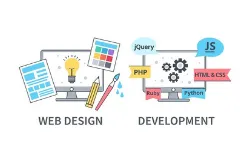Benefits Of Learning Python For Non-Programmers
Learning Python can offer several benefits for non-programmers, making it an attractive choice for beginners. Here are some of the key advantages of learning Python if you're not a programmer:
1 Ease of Learning:
Python is known for its straightforward and readable syntax. Its simplicity makes it an excellent choice for those new to programming, as it minimizes the learning curve.
2 Versatility:
Python can be used in various domains, including web development, data analysis, scientific computing, automation, and more. Learning Python provides you with skills applicable in diverse fields.
3 Rapid Prototyping:
Python allows you to quickly build prototypes and proof-of-concept applications. This is valuable for non-programmers who want to test ideas or create basic software solutions.
4 Large Community and Resources:
Python has a vast and active community, which means there are plenty of tutorials, forums, and online courses available to support your learning journey.
5 Abundant Libraries and Frameworks:
Python offers a wide range of libraries and frameworks for specific tasks. These pre-built tools can simplify complex tasks and save time.
6 Career Opportunities:
Even if you don't plan to become a professional programmer, Python skills are valuable in many industries. Knowledge of Python can enhance your resume and open up job opportunities in fields like data analysis, scientific research, and more.
7 Data Analysis and Visualization:
Python has robust libraries like Pandas and Matplotlib that are widely used in data analysis and visualization. Learning Python can empower you to work with data more effectively.
8 Automation:
Python is an excellent choice for automating repetitive tasks, making it handy for anyone who wants to streamline their workflow, from office workers to researchers.
9 Problem Solving:
Learning Python encourages a structured approach to problem-solving, which can be beneficial in various aspects of life, not just programming.
10 Community Projects:
Python is often used in open-source and community-driven projects. Contributing to such projects can be a rewarding way to apply your skills and give back to the community.
11 Entry Point to Programming:
Learning Python can serve as a stepping stone if you later decide to delve into more complex programming languages. The programming concepts you grasp with Python are transferable to other languages.
12 Engaging Projects:
Python is fun to learn, and you can start working on interesting projects relatively quickly. Whether it's building a simple game, creating a personal website, or automating household tasks, Python offers opportunities for creativity.
13 Networking Opportunities:
Attending Python-related events and meetups can help you connect with professionals in various fields, expanding your network and opening up new opportunities.
In summary, learning Python is a valuable investment for non-programmers. Its simplicity, versatility, and broad range of applications make it an excellent choice for those looking to acquire new skills, enhance their problem-solving abilities, and explore various career opportunities beyond traditional software development roles.
Most Popular Course
Data Science || Web designing & development || Full Stack Developer || Graphic Design || Java || Python Programming








